Flawed report safeguards two of the worst state governments in decades
The Covid report is too polite to state the obvious: Victorians were the victims of a huge experiment in mass population control conducted by Daniel Andrews and his health bureaucrats.
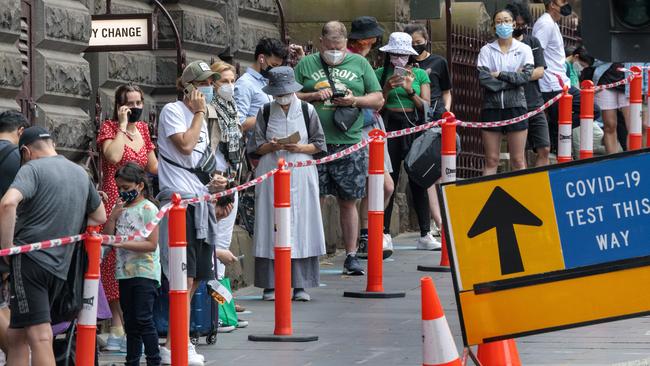
The panel reviewing Australia’s performance documents a list of consequences from the experience of Covid-19: busted trust in official advice; unjustified lockdown measures; a deficit of transparency about the impositions on people; the shutting of schools against medical advice; inequitable burdens on the disadvantaged; and – with pandemics predicted to occur on average every 20 years – the need for reforms to ensure a better policy response next time.
The release of the 871-page report commissioned by the Albanese government came with a surprise – despite instructions in the terms of reference to ignore unilateral actions by state governments – the authors, while not identifying the premiers, have issued a powerful critique of their punishing policies. It is a welcome and overdue step on the road to accountability for the blunders and overreach in the nation’s pandemic response with the premiers bearing the chief responsibility.
But this is a flawed report. It is inadequate primarily because of the political protection the Albanese government insisted on to safeguard the reputation of the Labor Party, notably the former Andrews and Palaszczuk governments, two of the worst state governments in decades.
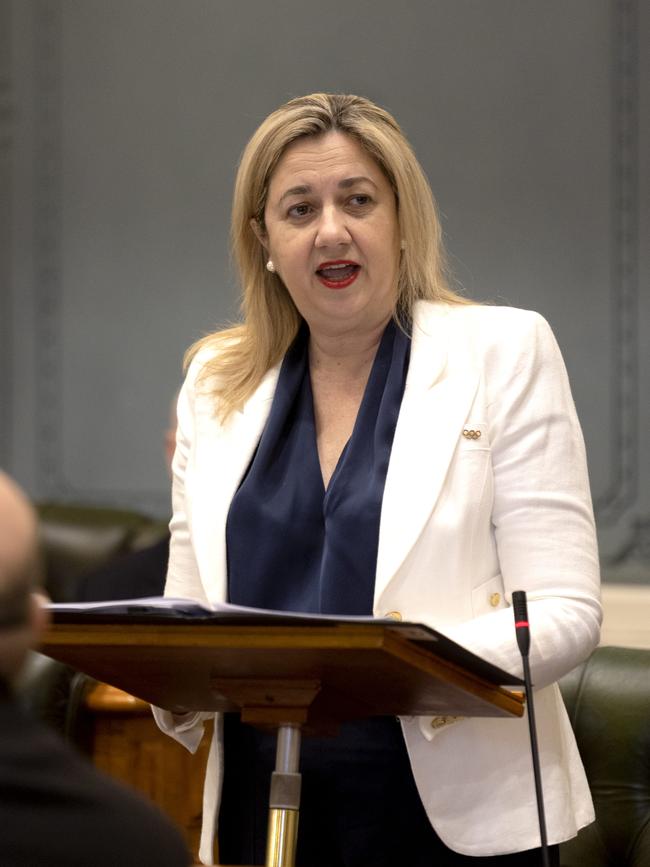
The inquiry was hampered by the outrageous term of reference that it must not examine “actions taken unilaterally by state and territory governments” – which covers the bulk of the Covid health measures. In this sense, the review is a macabre joke – it bemoans the “lack of transparency” in the pandemic measures yet the entire report suffers from a lack of transparency.
In truth, this is the report on how the nation managed Covid when you don’t really want the report. The pandemic was the greatest health challenge Australia faced for a century and the greatest potential economic challenge since the Depression and what do we get? A federal government that lacks the honesty and courage to properly assess what happened. It is beyond pathetic.
The report, however, did have the gumption to say the “decisive and difficult decisions” taken by prime minister Scott Morrison and other ministers at the outset of the crisis “demonstrated courageous leadership and actions” that “protected Australian lives in the first wave”, that set the nation on a path that “reduced the overall negative impacts of the pandemic”, and that the critical decisions involved closing the international border, agreeing a national lockdown and creating a national wage subsidy scheme in JobKeeper.
While the review is geared to how Australia should manage future pandemics, some of its assessment of our Covid experience is flawed – notably the economic evaluation, which makes a number of highly dubious claims, seized on by Jim Chalmers to launch a political attack on the Coalition.
The brief given the review means it is weak in discerning the precise strengths and flaws of Australia’s response. However, the critical legacy is the conclusion that the erosion of trust is such that “many of the measures taken during Covid-19 are unlikely to be accepted by the population again” – a devastating judgment.
The review says that in future the only lockdowns the public will accept “if at all” will need to be “short” and “sharp” – and there would probably be “decreased public compliance”. Many may be pleased by this view yet it testifies to a profound cultural legacy that must limit future health options.
In reality, the low profile given this report, the absence of accountability by the states and the denial of responsibility by most of the media that fanned the Covid hysteria with exaggerated claims suggests Australia may lack the motivation to learn the lessons for next time. The review recognises Australia’s overall Covid accomplishment in health and economic terms, says people “should be proud of what we achieved”, but says the delay in vaccine procurement and distribution was a flaw that cost an extra $31bn in additional lockdowns.
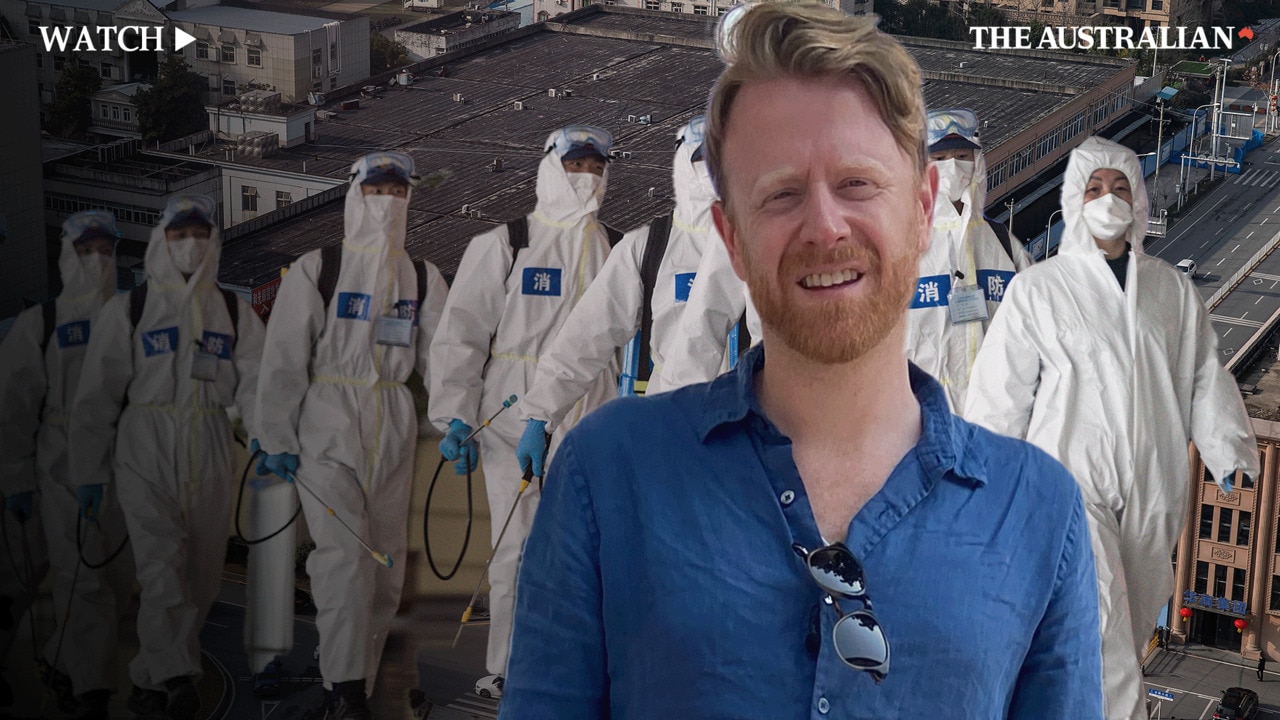
In presenting the report, Butler emphasised Australia’s successful navigation of the crisis judged by international comparisons but recognised that “our data and disease surveillance systems were, frankly, not up to the task”. Butler identified an “important insight” from the report – the lockdowns and restrictions necessary in the early phase failed to evolve over time into an evidence-based response “that balanced risks and benefits”.
This failure is sheeted home to leaders and governments that didn’t adjust as the pandemic continued but persevered with punitive policies. But the report is insufferably polite; it cannot name names. It implies but is not allowed to speak the truth: the pandemic was consumed by politics, the real power lay with premiers, and the three dominant ALP premiers, Daniel Andrews, Annastacia Palaszczuk and Mark McGowan, went their own way with lockdowns and border protections and became populist heroes.
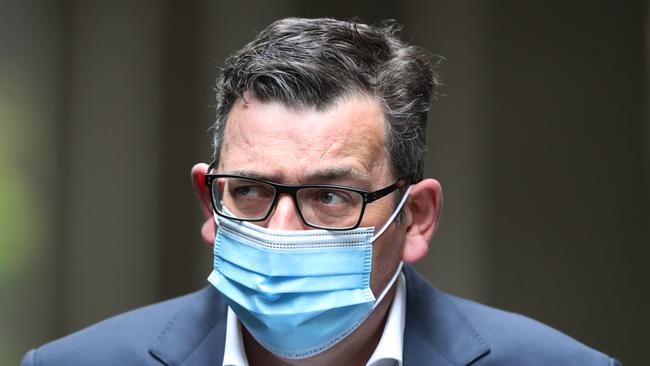
The report, however, has no truck with the libertarian fantasy that all lockdowns and social distancing were blunders – its critique is that the measures eventually became disproportionate, unscientific, non-transparent, did more damage than good and ruined public trust. In this sense, it is evidence-based, not ideological. The review recognised Morrison’s efforts to try to secure consensus in the national cabinet and a reopening plan but the “unity of purpose” waned as the emergency continued and “trust between the leaders eroded”.
The report names the factors that “diminished trust and eroded public confidence” as “lack of transparency, fairness, compassion and proportionally”. It says: “People felt they were unable to criticise or question government decisions and policies. Focus groups described how fear-based, patronising and heavy-handed communication from political leaders added to the perception that restrictions were not up for debate.”
The federal Treasurer mobilised the report for a political assault on the Coalition, a move that only reinforces questions about the integrity of its economic sections. While saying a “big, substantial economic response” was justified, Chalmers said the economic response was “badly implemented and poorly targeted”, that it should have been rolled out faster, that billions were wasted and that JobKeeper was poorly designed.
Citing modelling from the report, Chalmers said “peak inflation was at least two percentage points higher than it could have been”, thereby attributing the high inflation inheritance of the Albanese government to fiscal and monetary policy under the Coalition government. That’s a potent charge in the coming election context.
While Butler said the report’s purpose was to get a better playbook for the future and “not to second guess the decisions of the past” Chalmers didn’t get or didn’t want to get this message. His claims are on shaky ground. For instance, in Chalmers’ early ministerial statement of July 28, 2022, on the economy, he said the International Monetary Fund was expecting global inflation to reach 8.3 per cent and attributed Australia’s inflation primarily but not exclusively to global forces. He warned: “We can’t control the war in Ukraine or China’s Covid policies.”
The report’s claims on inflation are short on realism; it quotes modelling by Chris Murphy that inflation could have been reduced by 2.1 per cent if macro-economic policy had better matched the health restrictions and the Reserve Bank had started lifting interest rates in May 2021, not May 2022. This is superb hindsight but devoid of any practical consideration at the time.
While Chalmers had some valid criticisms of JobKeeper at the time, and the scheme did overcompensate some businesses, former treasurer Josh Frydenberg hit back at Chalmers this week, accusing him of hypocrisy and saying of Labor: “They wanted the government to expand taxpayer assistance to wholly foreign government owned companies, buy an airline and extend JobKeeper beyond its 12-month life. When JobKeeper was coming to an end, Chalmers said it would have ‘diabolical consequences’.” Frydenberg tells Inquirer: “While the Covid inquiry was designed to navigate a way forward to prepare for the next pandemic, Jim Chalmers is busy trying to rewrite history for blatant political gain. He is entitled to his own opinions but not to his own facts.”
Chalmers’ own department, the Treasury, commissioned an independent report of JobKeeper delivered to the Albanese government in September last year that found JobKeeper cost $88.8bn, was effective in delivering its goals, provided “value for money” and offered support to around four million employees.
The Covid review endorses the Coalition/Treasury position that it was “better to err on the side of providing too much support than too little” to combat the pandemic’s economic impact. The review says the economic response “demonstrated extraordinary agility – economic support was set up very quickly in response to a rapidly evolving pandemic”. It says the speed with which JobKeeper was set up was “extraordinary” and “the government delivered an unprecedented amount of economic support very rapidly and in proportion to the size of the downturn”.
Independent economist Steven Hamilton, who along with economics professor Richard Holden is the author of Australia’s Pandemic Exceptionalism, tells Inquirer: “I’d note – and this was lost in the review – that Australia probably had the best designed and targeted economic supports of any country in the world. We can quibble, but let’s not forget the bigger picture. We achieved a huge success. I’d advise the government to do much the same if there was a pandemic outbreak tomorrow.

“It’s worth noting the government showed a commendable degree of fiscal restraint as the crisis went along. They scaled down JobKeeper after six months and got rid of it entirely after 12 months, when at the time many were calling for it to be extended and it wasn’t clear ending it was the right call. I recall at the time being impressed by their degree of restraint – a willingness to hold the line against endless calls for more support.
“That’s been lost in the wash-up and got no credit from the review. The review somehow makes the opposite argument. I disagree. The Treasurer’s response to the review findings is appalling and reeks of hypocrisy.” Hamilton says the Coalition government at the time showed “good judgment” in ignoring Chalmers’ advice and “had they listened to him, the inflationary situation would have been even worse”.
In relation to inflation, Hamilton and Holden write in their book: “Public health officials were warning of a worst-case scenario in which 150,000 Australians could die of Covid-19. In the end, Australia handled the public health side of that first wave better than anyone could have anticipated. Had we known, we might not have spent so much; but then, how could we have known? So we took out some insurance. Like any insurance, it came with a premium. That premium is inflation.”
Hamilton says the Murphy modelling is “not evidence of any kind” but relies critically on an unknown counterfactual – what would the economy have been like in the absence of the measures? That’s something we have no idea whatsoever about.
The review was chaired by a highly experienced former public servant, Robyn Kruk, supported by Professor Catherine Bennett and Dr Angela Jackson. Its central recommendation, accepted by the government, is for the creation of an Australian Centre for Disease Control that would have “an authoritative voice” on technical and health issues relating to the threat and responses to future pandemics.
The CDC would have ties to the states and territories and would be intended to build transparency, trust and independence. But under questioning, Butler said the CDC would not have the power to direct states. The states would retain their powers, their public health laws, their own systems of advice coming from their chief health officers to health ministers and premiers. “We’re not seeking to take that over,” Butler said.
In short, the core framework will remain in place. The federal government cannot take over the constitutional powers vested in the states. The upshot is that many people will ask: what’s really different? The ultimate lesson from the virus is that premiers will exercise the power they have the way they want.
The review says future planning must be based on “rebuilding trust and resilience with populations”. It says compliance has to be reassessed, notably the use of police and the Australian Defence Force. It found the different restrictions across different states undermined public confidence when everybody said they were following the science but running different policies.
The report says national cabinet agreed on July 2, 2021, that lockdowns were to be used only as “a last resort”.
Yet, shortly after, “stringent lockdowns were introduced in Victoria (and they were already in place in NSW) and they remained until vaccine targets were met and Australia began to open up”. The panel is explicit: lockdowns have “lost credibility with the Australian public”.
It says: “The city of Melbourne was kept in lockdown for 112 days in the second wave in 2020. The final 30 days of that lockdown had either single-digit case numbers or zero cases reported, and most were contacts of known cases in quarantine.
“This is one of the few examples globally of an extended Covid-19 outbreak where the virus was eliminated through the application of non-pharmaceutical interventions. For more than half of the latter part of that wave, most cases were directly linked to aged care facilities outbreaks. The rest of the population were kept in lockdown to reduce the risk of outbreaks spreading back into the community via workers or their household contacts.
“Use of statewide lockdowns where there had been no recent cases outside a capital city, rather than localised lockdowns, contributed to the loss of credibility.”
The report is too polite to state the obvious: Victorians were the victims of a huge experiment in mass population control conducted by Andrews and his health bureaucrats, without explanation or evidence being produced for their prolonged lockdowns that were devoid of any effort to balance the gains and losses.
One of the worse decisions during the pandemic was the extent of school closures: “The panel notes that while the Australian Health Protection Principal Committee never recommended widespread school closures, a lack of early and clear communication on the risks undermined public confidence, particularly for parents with school-aged children, teachers and unions. This created the environment for subsequent state-based decisions to transition to remote learning that impacted the quality and accessibility of education throughout the pandemic.”
Morrison fought hard to keep schools open. The report barely touches on this – consistent with its avoidance of any of the details in the conflicts within national cabinet. As a case study the schools issue is a shameful example of the premiers responding to public pressure and taking decisions based on politics, not the health advice or the best interests of students.



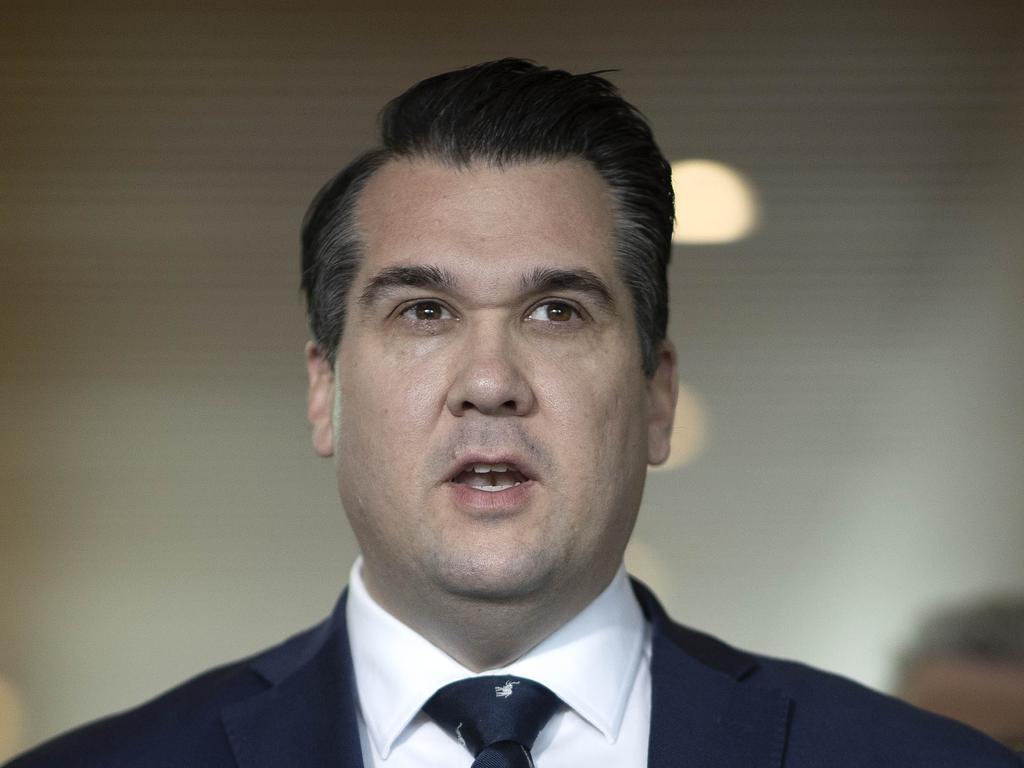




‘Trust is easily lost; it’s hard to regain – this is going to be a long, hard process.” With these words federal Health Minister Mark Butler identified this week the enduring negative from Australia’s largely successful navigation of the Covid-19 pandemic crisis.